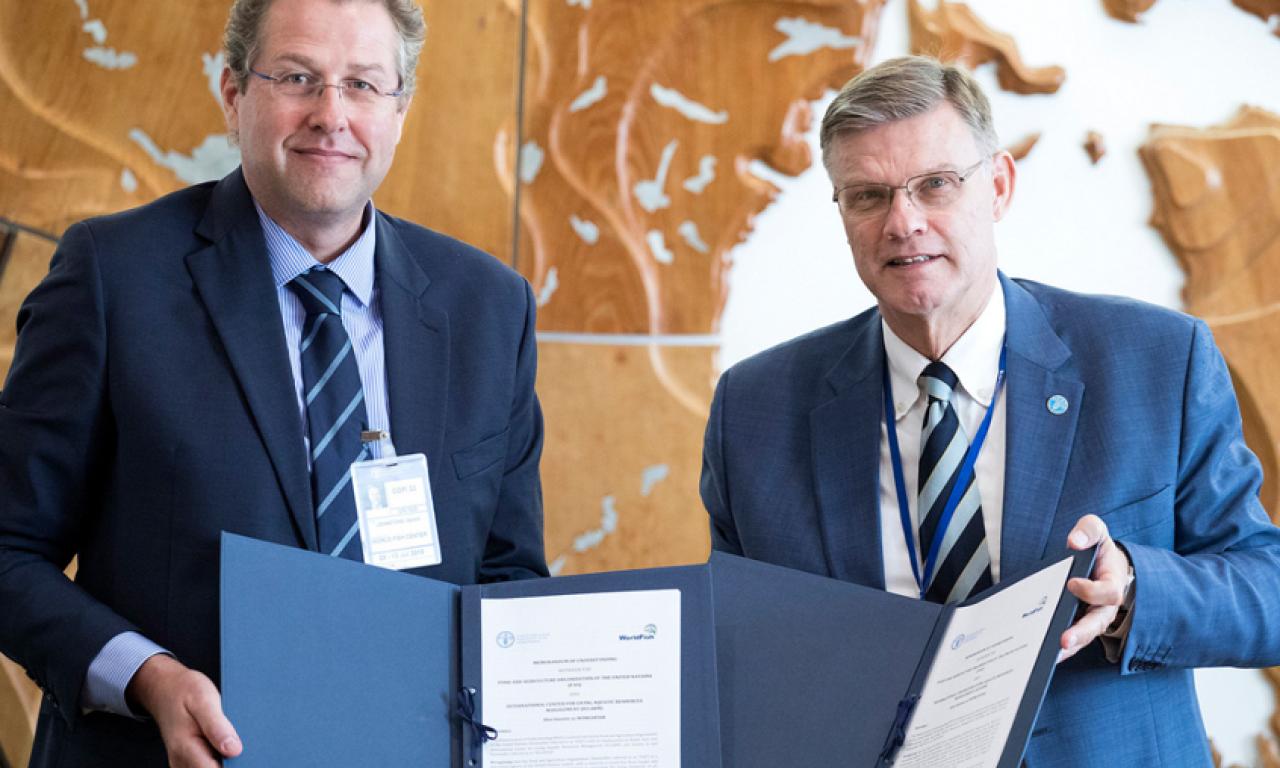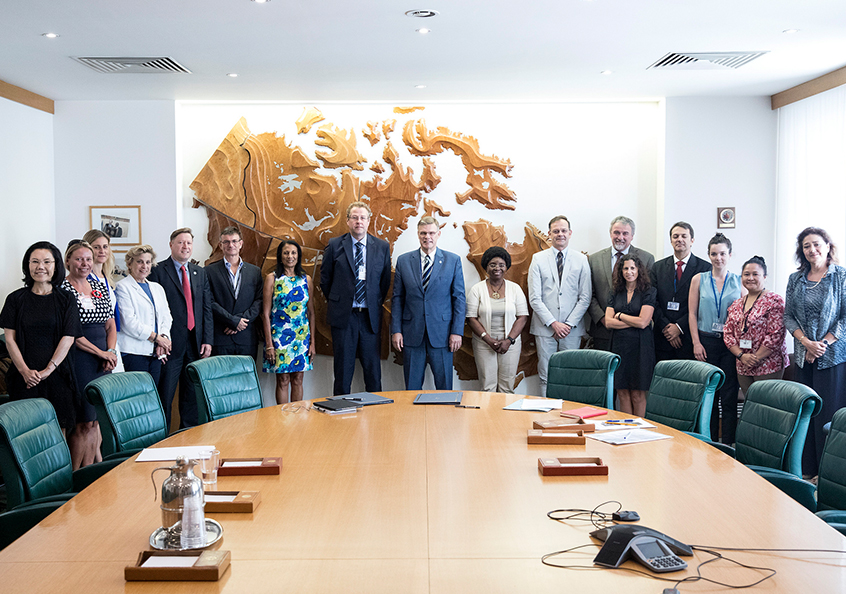
A new understanding between WorldFish and FAO will combat hunger and improve livelihoods by promoting the impact of fisheries and aquaculture research.
Recommended publications
- Aquaculture businesses: A low-cost option for economic growth in Bangladesh
- Hidden harvest: The global contribution of capture fisheries
- Public and private partnerships in aquaculture: A case study on tilapia research and development
A new understanding between FAO and WorldFish will combat hunger and improve livelihoods by promoting the impact of fisheries and aquaculture research.
In the developing world, more than 1 billion poor people obtain most of their animal protein from fish. Over 800 million depend on fishing and aquaculture for their livelihoods. Global fish production peaked at about 171 million metric tons in 2016, and the percentage of stocks fished at biologically unsustainable levels increased from 10 percent in 1974 to 33.1 percent in 2015.
These stark statistics come from the latest edition of The State of World Fisheries and Aquaculture (SOFIA) report, published in July 2018 by the UN’s Food and Agriculture Organization (FAO).
Amid fears over the sustainability of a key source of protein for millions around the world, the report goes on to note that aquaculture continues to grow faster than other major food production sectors, at 5.8 percent per year since 2000. The total production included 80 million metric tons of food fish (USD 231.6 billion). Since the 1980s, virtually all of the increase in the amount of fish consumed has come from aquaculture, which has outpaced population growth and become the world’s fastest growing food production industry. Since 2014, aquaculture has provided more fish for human consumption than capture fisheries.
FAO projects that by 2030 combined production from capture fisheries and aquaculture will grow to 201 million metric tons. That is an 18 percent increase over the current production level of 171 million metric tons. This future growth will require continued progress in strengthening fisheries management regimes, reducing loss and waste, and tackling problems like illegal fishing, pollution of aquatic environments and climate change, the report adds.
Enhancing the impact of fish
The SOFIA report was launched at the 33rd Session of the Committee on Fisheries (COFI), which took place at FAO's headquarters in Rome from 9–13 July 2018. During this meeting, Dr. Gareth Johnstone, Director General of WorldFish, and Dr. Árni Mathiesen, Assistant Director General of FAO’s Fisheries and Aquaculture Department, signed an agreement that will boost their efforts to build the resilience of fishers and small-scale fish farmers, promote sustainable aquaculture and improve fish value chains.
“This partnership is a fantastic opportunity to enhance the impact of fish on the well-being of millions of consumers, producers and fisheries-dependent people worldwide,” said Dr. Johnstone. “It combines WorldFish research skills and experience with FAO’s policy-making capacity for greater impact.”
FAO and WorldFish have had a productive and mutually advantageous relationship and they are looking to achieve higher level impacts. The two organizations will in particular aim at improving the resilience of small-scale fisheries (SSF), promoting sustainable aquaculture systems and improving the nutritional and economic benefits from fish value chains. The agreement will give FAO access to results and innovations from WorldFish fisheries and aquaculture research. The linkage between country-level research and the global policy reach of FAO will increase the impact of this research.
“FAO and WorldFish are natural partners, with highly complementary objectives and a common goal of ensuring food security and access to fish from sustainable food systems,” said Dr. Mathiesen.

A diet of fish, particularly small fish, is rich in micronutrients such as vitamin A, iron, calcium, zinc and essential fatty acids. Such a diet helps to combat malnutrition and alleviate nutritional deficiencies that often occur in developing countries.
“Cognition, development and growth can be optimized by increasing fish consumption in the first 1000 days of life, focusing on the pregnant and lactating woman – and thus the first stage of the 1000 days when the rate of brain development is highest,” said Shakuntala Thilsted (seventh from left above), Research Program Leader of Value Chains and Nutrition at WorldFish, during COFI.
The new partnership will harness the power of research in fisheries, aquaculture and fish value chains to improve programs and policies for the benefit of millions of fishers and fish farmers in some of the world's poorest communities.
